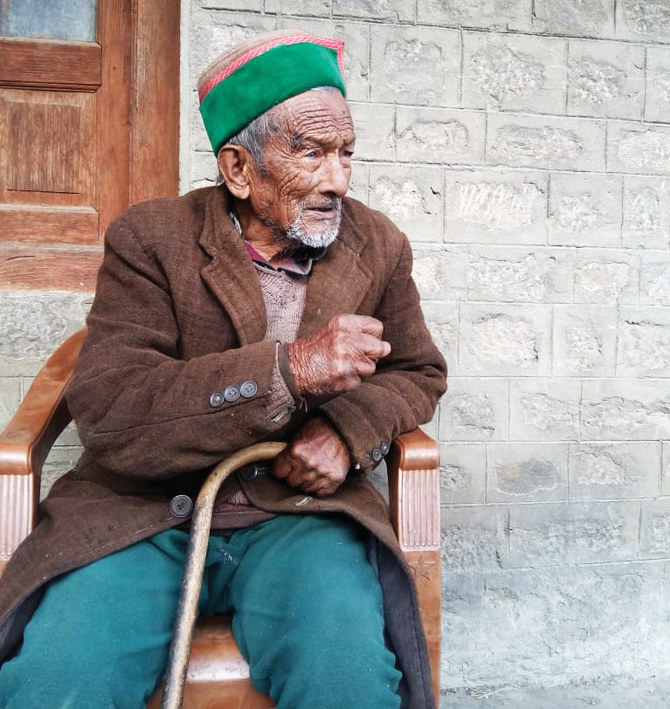NEW DELHI: At 102, India’s oldest voter Shyam Negi is all set to head to the polls for a national record 32nd time.
The retired teacher has cast his vote in every major poll since the country’s first elections in 1951.
And the father-of-seven, who in 2014 was made brand ambassador and mascot for the Election Commission of India, has the distinction of being the first ever Indian to complete an election ballot paper.
Although an ardent supporter of India’s current Prime Minister Narendra Modi, Negi believes the outcome of recent Indian-Pakistani tensions over Kashmir could be a crucial deciding factor in the result of India’s general elections later this year.
Negi will be keeping abreast of developments by listening to news updates on his trusty Philips radio from his Kalpa village home in the Kinnaur district of Himachal Pradesh, a state in northern India.
“A lot has changed in India since 1951 when I voted for the first time,” Negi told Arab News.
“Jawaharlal Nehru (India’s first Prime Minister) was a tall leader and his speeches used to sway the voters. India was just taking baby steps as a new nation when it held its first election. There was a new hope, new desire and a new air,” he said.
India’s 17th general election will be held from April 11 to May 19 this year, and Negi said he cannot wait to vote again.
“If you include local elections, legislative elections and all the previous polls, I have voted 31 times and I am quite keen to vote for a 32nd time too.”
Negi retired as a school teacher in 1979 and since then has been living in Kalpa with his youngest son. A father of four daughters and three sons, Negi lost his wife three years ago. But that hasn’t stopped him from being treated as something of a local celebrity, especially on the back of his Election Commission of India mascot status.
He is credited as being the first person to vote in India. In 1951, the election in his parliamentary constituency took place three months ahead of schedule to avoid bad weather.
Negi said he was on election duty that day but had to go to another village to oversee the polls. So, he asked the polling agent in his village to take his vote before he left, therefore filling in his ballot paper before anyone else.
“Democracy is a dynamic process. Your vote is not a piece of paper but a weapon that one can use to change the direction of the country,” added Negi, who claims to have seen Mahatma Gandhi during a visit by the Indian activist to Shimla.
“Politics has also undergone change. Earlier there was the (Indian National) Congress party which was dominant, now there are many parties and the BJP (Bharatiya Janata Party) is the powerful party,” said Negi.
“It is a beauty of democracy that anyone can occupy high office. Even a tea-seller can become a prime minister (referring to Modi).”
Negi said every vote counted, and he urged young people to “understand the power of the vote” and turn out in force at the forthcoming elections.
Although never having considered being a politician himself, Negi has always taken a keen interest in politics, and believes Modi deserves the chance of another term in office.
Negi’s hearing may be deteriorating, but not enough to stop him from tuning into his radio. “On May 19, I will cast my vote when the elections are held in the village. I am really keen to know the result of this election,” he said.















